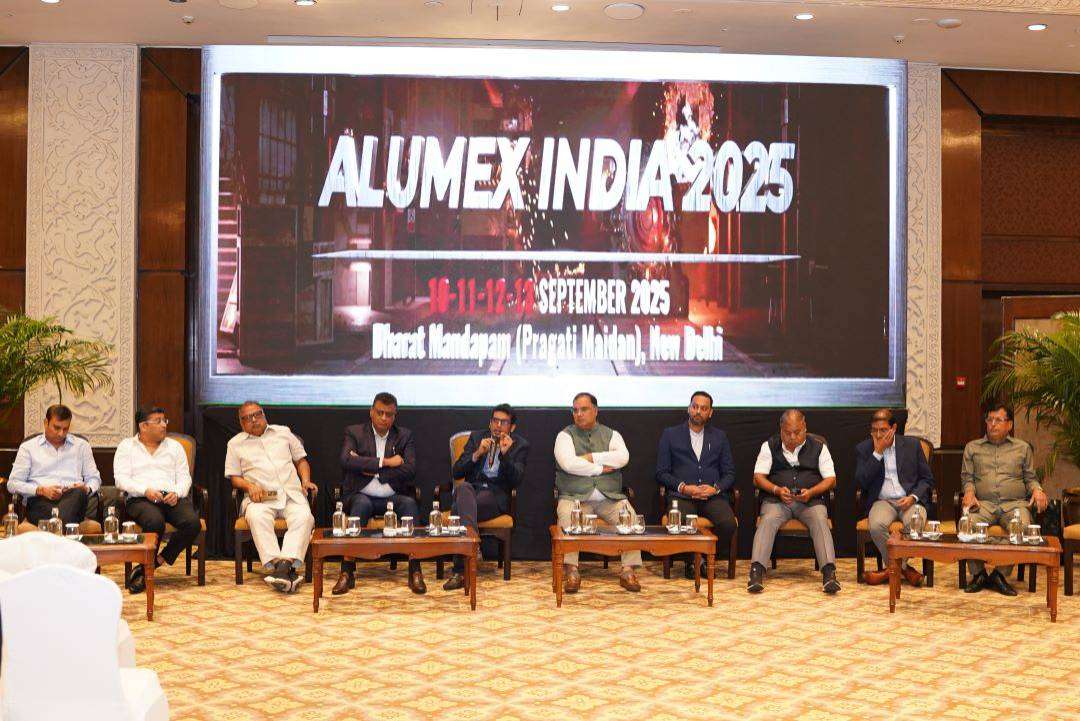The Aluminium Extrusion Manufacturers Association of India (ALEMAI) has urged immediate action to boost domestic demand for aluminium extrusion products, highlighting that overdependence on imports is weakening the sector and leaving it vulnerable to international trade disruptions such as tariffs imposed by the United States. Despite a national production capacity of 3 million tonnes annually, current utilisation is only around 1.2 million tonnes.
Meanwhile, imports have crossed 1.5 million tonnes, driven by lower global prices, Free Trade Agreement (FTA) benefits, and duty-free access to a range of finished products under various HSN classifications. ALEMAI warns that without protective measures, small and medium manufacturers may face mounting survival challenges.
Jitendra Chopra, President of ALEMAI, stated, “Rather than waiting for relief from international trade tensions, we must act decisively to grow our domestic market. That’s the only sustainable path forward.” He also raised concerns over state procurement policies that favour uPVC materials—derived from crude oil—for doors, windows, and partitions. ALEMAI argues that with India’s abundant bauxite reserves, aluminium should be prioritised to reduce import dependence and strengthen local industries.
Mr Chopra added, “We urge the government to remove aluminium extrusion-based value-added products from FTA concessions and implement safeguards against underpriced imports. With strategic support and increased billet production from public sector units like NALCO, India can become a global hub for aluminium extrusion.”
Although manufacturing units are spread across the country, the sector continues to operate below capacity due to fluctuating raw material prices, import competition, and delays in production. Still, industry leaders remain optimistic. Strong growth is projected, fuelled by demand from construction, electric vehicles, and renewable energy infrastructure.
In particular, demand from the building sector continues to rise for aluminium doors, windows, structural framing, and facades. The automotive industry’s shift toward lightweight materials is another key driver, along with mounting demand for solar panel mounting structures and related components.
In an effort to showcase sector potential and address challenges, ALEMAI is hosting ALUMEX India 2025, the country’s first dedicated aluminium extrusion trade show. Scheduled from September 10–13 at Bharat Mandapam, New Delhi, the event will feature over 200 exhibitors and is expected to attract more than 15,000 visitors, including manufacturers, policymakers, and global buyers. “ALUMEX India 2025 is more than just a trade event—it’s a commitment to build a stronger, self-reliant aluminium ecosystem in line with the vision of Atmanirbhar Bharat,” Mr Chopra said.
The event will feature knowledge sessions on localising technology, green manufacturing practices, and MSME support policies. It will also address key policy areas such as FTA impacts, anti-dumping measures, and the role of production-linked incentive (PLI) schemes.
The initiative is backed by major industry players and government bodies, including Hindalco, Vedanta, the Ministry of Commerce, the Jawaharlal Nehru Aluminium Research Development and Design Centre (JNARDDC), Yantra India Ltd (under the Defence Ministry), and EEPC India under the Ministry of MSMEs.
ALEMAI represents over 250 member organisations, from MSMEs to large enterprises, supporting more than 450,000 jobs directly and indirectly. The association plays a crucial role in promoting industry standards, driving innovation, and working with policymakers to enhance India’s global competitiveness in the aluminium extrusion sector.








